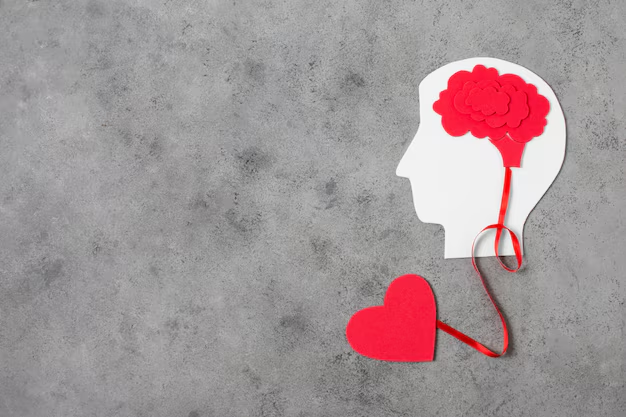In today’s high-speed and demanding world, focusing on mental health has never been more basic. As jobs increase and the line between work and individual life keeps on obscuring, mental health days are turning into a fundamental instrument for keeping up with balance, forestalling burnout, and encouraging, generally speaking, well-being. These purposeful days off rest are not an extravagance — they are a need for guaranteeing long-haul efficiency, inventiveness, and emotional steadiness. This article investigates the significance of mental health days, their advantages, and how to integrate them into your life. The Importance of Mental Health Days
Understanding Mental Health Days
Mental Health days are days off from work or daily obligations, taken with the particular aim of zeroing in on mental and emotional well-being. Dissimilar to customary days off that address actual sicknesses, Mental Health days are devoted to re-energizing your brain, overseeing pressure, and recovering a feeling of balance. They can include exercises like unwinding, treatment, working out, or never really de-pressurizing.
The disgrace encompassing mental health much of the time makes individuals reluctant to require it nowadays. Nonetheless, the brain expects breaks to adapt to emotional and psychological demands as the body needs rest to recuperate from actual strain. Recognizing this need is the most important move toward making a better relationship with your mental health.
The Growing Need for Mental Health Days
The cutting-edge working environment is described by a steady network, high-pressure cutoff times, and a culture that frequently extols exhaustion. While these variables can drive transient efficiency, they frequently come at the expense of mental health. Stress, nervousness, and burnout are progressively predominant, influencing individual representatives as well as associations.
The Coronavirus pandemic further featured the significance of mental health, as individuals confronted uncommon difficulties, including disconnection, monetary vulnerability, and health fears. These stressors clarified that mental health is similarly basically as significant as physical health, highlighting the need for purposeful breaks to recuperate and reset.
Incorporating mental health days into your routine is definitely not an indication of shortcomings, but it is a proactive way to maintain strength and forestall long-term issues.
Benefits of Taking Mental Health Days
Getting some margin to zero in on your mental well-being has expansive advantages stretching past prompt pressure alleviation. These include:
Preventing Burnout: Burnout is a condition of emotional and psychological demands and mental and actual fatigue brought about by delayed pressure. Mental health days allow pulling back from stressors and re-energizing, Preventing Burnout before it grabs hold.
Boosting Productivity: Despite the conviction that time off blocks work, Mental Health days can boost productivity. Rested personalities are more imaginative, centered, and productive, empowering you to perform better over the long haul.
Improving Emotional Health: Normal breaks help control feelings, decrease nervousness, and improve a general state of mind. This emotional solidness encourages better relationships and decision-making.
Enhancing Physical Health: Chronic stress can prompt physical ailments, such as blood pressure, debilitated invulnerability, and rest aggravations. Mental health days assist with lightening stress and promoting better physical health.
Promoting Self-Awareness: Carving out the margin for yourself energizes reflection and self-awareness, assisting you with recognizing what you want to keep up with balance and well-being.
Signs You Need a Mental Health Day
Perceiving when you want a mental health day is vital for avoiding delayed pressure and burnout. Normal signs include:
Determined Weakness: Feeling continually drained, even after satisfactory rest.
Difficulty Concentrating: Battling to productively concentrate or complete assignments.
Emotional Instability: Encountering peevishness, misery, or tension more habitually than expected.
Loss of Motivation: A perceptible decrease in excitement for work or individual exercises.
Physical Symptoms: Cerebral pains, stomachaches, or muscle pressure with no unmistakable actual reason.
Standing by listening to these signs and making proactive strides can keep minor issues from growing into additional difficult issues.
How to Plan a Mental Health Day
Taking a mental health day requires expectation and wanting to expand its advantages. The objective is to participate in exercises that recharge your energy and reestablish harmony. This is the way to design a compelling mental health day:
Set Boundaries: Inform your boss or relatives about your requirement for a free day. Be clear about your expectations to avoid interference.
Recognize Your Requirements: Consider what will help you feel re-energized, whether it’s rest, social association, or active work.
Make an Arrangement: Conclude how you’ll go through your day. Incorporate exercises that unwind, empower, or move you, like contemplation, a stroll in nature, or perusing.
Keep away from Work: Fight the temptation to browse messages or complete incomplete errands. Permit yourself to separate from liabilities completely.
Practice Self-Sympathy: Don’t feel regretful about taking a day for yourself. Remember that emotional health is as important as actual well-being.
Exercises to Think about on a mental health Day
While Mental Health days are private and ought to line up with your inclinations, certain exercises are all-around advantageous for diminishing pressure and working on well-being:
Relaxation: To loosen up, take an air pocket shower, practice yoga, or engage in profound breathing activities.
Imaginative Pursuits: To communicate thoughts and re-energize and participate in leisure activities like composition or music.
Actual work: Exercise supports endorphins and lessens pressure, whether a delicate walk or an exercise.
Nature Time: Invest energy outside to profit from natural air and regular environmental factors.
Care Practices: Reflect, practice appreciation, or diary to focus on your contemplations and feelings.
Social Association: Connect with friends and family for significant discussions and backing.
These exercises can be joined or custom-fitted to your interesting necessities, making for a helpful and satisfying day.
Overcoming Barriers to Mental Health Days

Despite the reasonable advantages, many individuals wonder whether or not to take mental health days because of culpability, apprehension about judgment, or work environment culture. Overcoming these barriers begins with changing your perspective. Perceive that focusing on Mental Health isn’t a shortcoming but a strength that empowers you to appear as the best version of yourself in all everyday issues.
If you’re worried about how taking a mental health day will be perceived, begin by discussing it straightforwardly with your boss or partners. Numerous associations are increasingly mindful of the significance of Mental Health and may already have arrangements to help representatives. Pushing for yourself can rouse others to focus on their well-being, adding to a better work culture.
For those who struggle with culpability, rest is an important part of efficiency. Similarly to competitors, who need recuperation days to perform at their pinnacle, your brain needs margin time to work ideally.
Quick Tips for Incorporating Mental Health Days into Your Life
Schedule Regular Breaks: Plan mental health days ahead of time to forestall burnout.
Listen to Your Body: Focus on indications of stress and enjoy reprieves when required.
Make a Mentally supportive network: Offer arrangements with companions or family who can energize and uphold you.
Use Get-away Days Admirably: Commit a portion of your downtime to mental health, not simply travel or tasks.
Put forth Sensible Objectives: Spotlight on rest and revival without forcing yourself to be excessively useful.
The Drawn-out Advantages of Mental Health Days
The advantages of taking mental health days stretch out a long way past quick help. Over the long haul, these deliberate breaks add to further developed flexibility, a better balance between fun and serious activities, and upgraded by and large well-being. By routinely focusing on mental health, you fabricate an establishment for long-term emotional dependability, physical health, and expert achievement.
Incorporating Mental Health days into your routine likewise sets a model for others, empowering a culture that values health. This shift benefits people and creates better, more steady work environments and networks.
Past individual advantages and mental health days significantly affect relationships and professional performance. By permitting people to re-energize and address personal difficulties, these days work on close-to-home guidelines and lessen peevishness, prompting better correspondence and more grounded relational associations. For managers, the advantages are similarly critical; representatives who deal with their mental health are in many cases more drawn in, imaginative, and useful in their jobs. mental health days likewise energize a culture of help and understanding, encouraging a working environment climate where prosperity is focused. This, thus, lifts the general mood, decreases non-appearance, and helps construct a tough and fulfilled labor force. Perceiving the significance of mental health days is a stage toward making better, more healthy lifestyles both and by and professionally.
Conclusion
Mental health days are integral for maintaining balance, forestalling burnout, and encouraging general well-being. Getting some margin to zero in on your Mental Health isn’t liberal—it’s fundamental for continuing to live a satisfying and useful life. By perceiving the indications of stress, arranging purposeful breaks, and participating in exercises that recharge your energy, you can fabricate versatility and upgrade your satisfaction.
As the discussion around Mental Health advances, embracing the possibility that taking care of oneself isn’t narrow-minded is essential. Prioritizing Mental Health, both separately and overall, is a vital stage toward making a better, more caring society. Begin by allowing yourself to take a mental health day—you merit it.


